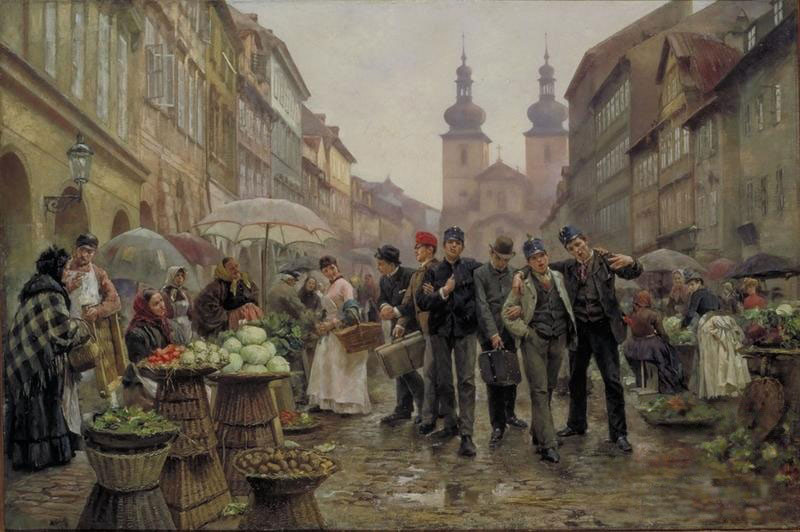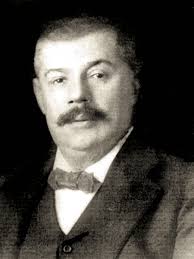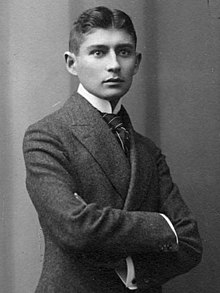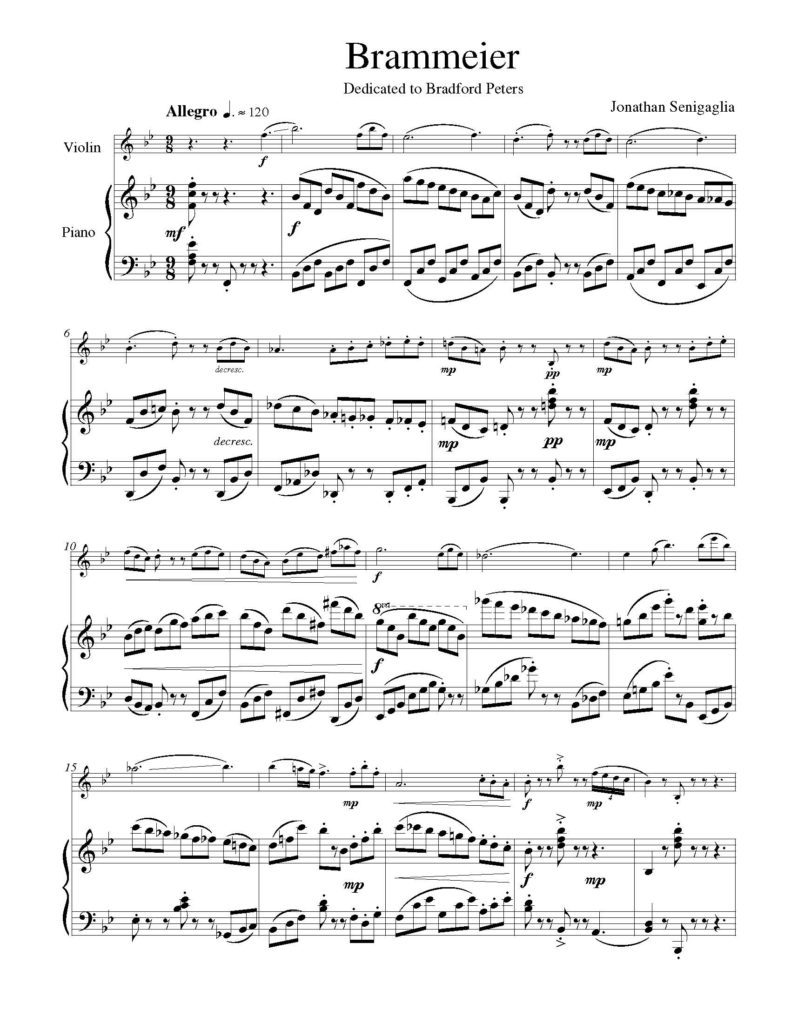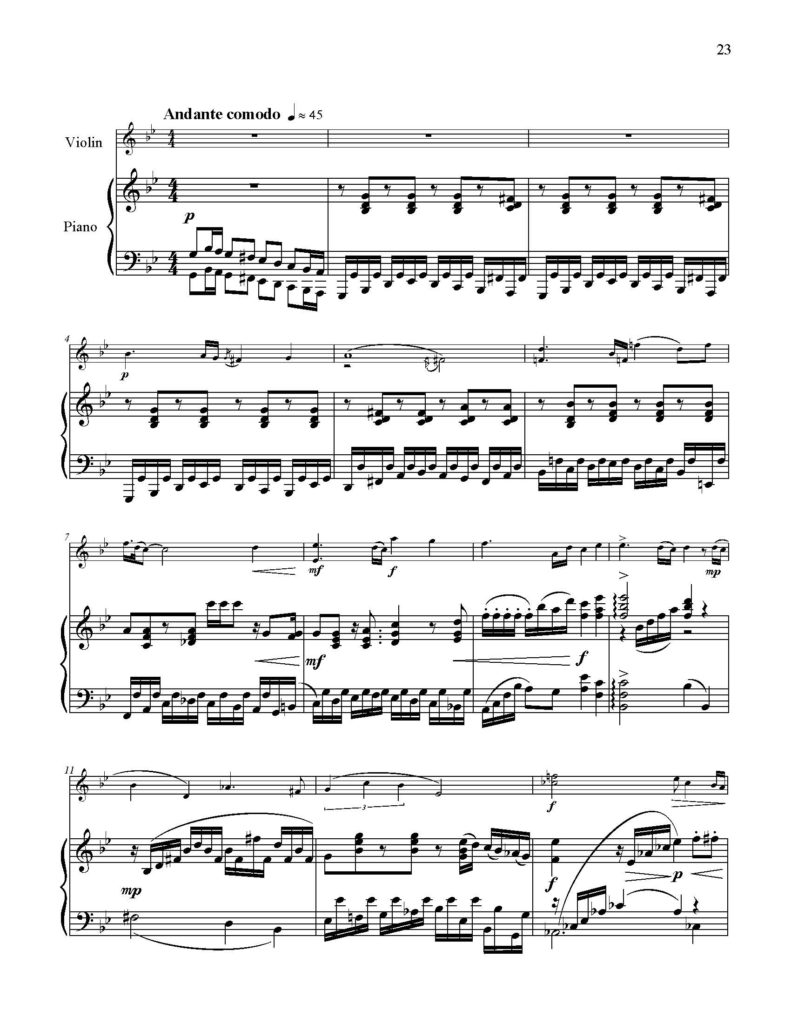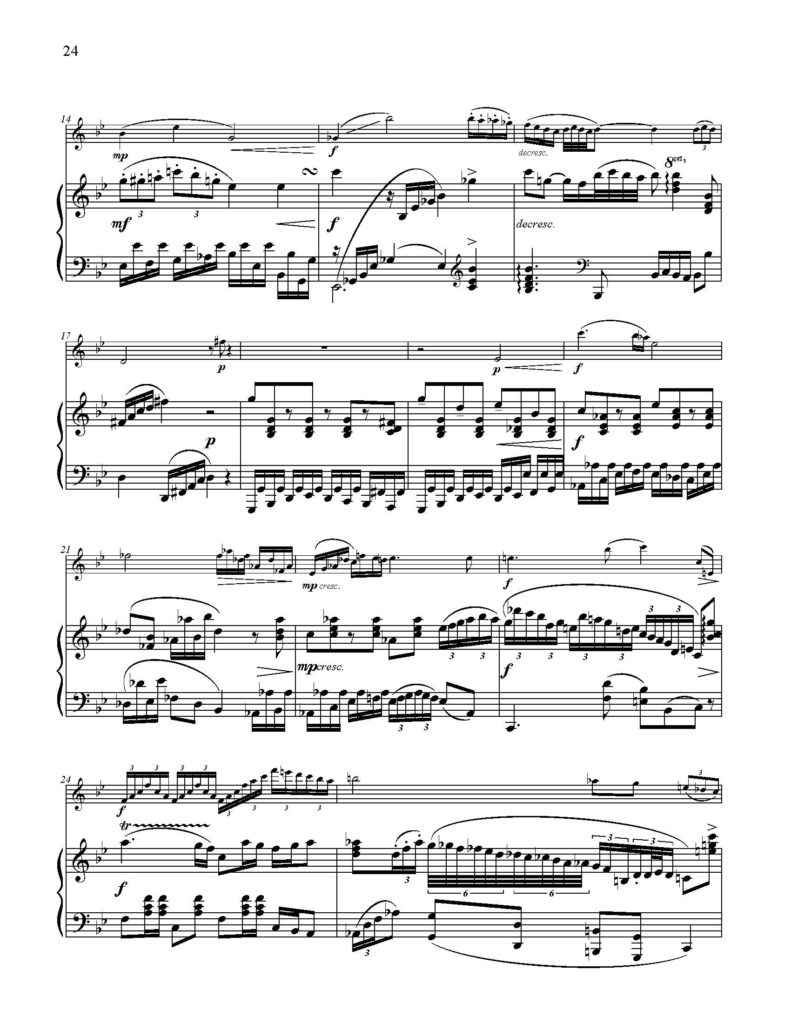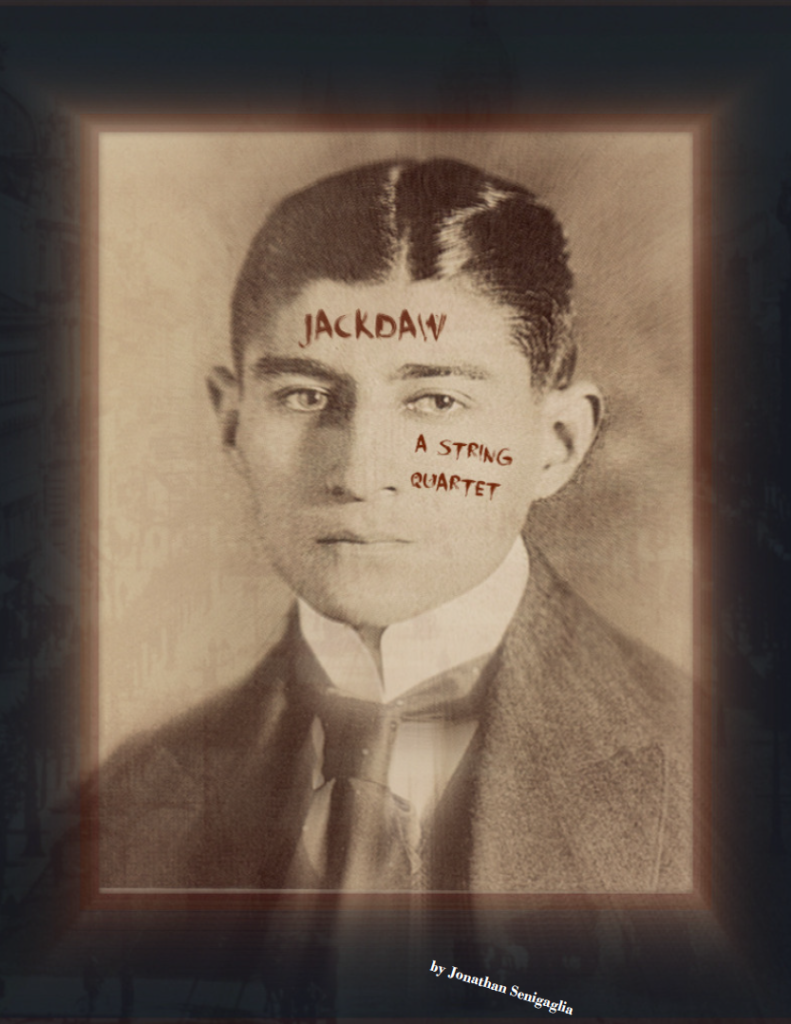
I have long been fascinated by the connection between music and literature. My favorite pieces are the ones that tell real stories, or convey a timeless message to which we can all relate. For example, in Schubert’s “Der Erlkonig” and Liszt’s “Mephisto Waltz,” the listener hears the devil’s laughter and knows the human characters will not survive. These scenes are profoundly tragic in ways that all humans can understand and relate to, yet all we hear are the musical notes. This is the power of art.
When I began this string quartet, I was working at a book store. Everyday I would sneak into the stacks of literature and read as much as I could without getting caught. It was during this time that I was introduced to the works of Franz Kafka. Immediately upon reading his words, I knew I wanted to set them to music. The dream-like quality of his stories and the constant sense of anxiety in his prose put me on edge, and filled me with difficult emotions. I began researching his life, and found his real story to be almost as painful as his characters’ stories.
Born in a Prague ghetto in 1883 to an emotionally abusive father and bewildered mother, Kafka developed into a nervous, death-obsessed adolescent. He never married, and some of his most substantial female relationships were through innuendo-filled letters with married women. He eventually took a job at an insurance bureau, but began writing short stories on the side. Though rarely published, his stories were startling and unique. Dark, haunting, and non-sensical, each one feels more like a drug-induced nightmare than a short story. Kafka wrote hundreds of letters and diary entries as well, detailing his vague escape fantasies; possibly to Palestine where his Jewish brethren would welcome him, or to far-away America where he could reinvent himself, or anywhere that he could finally find a community that accepted him for who he was. Franz was brilliant, but neither his father nor turn-of-the-century Prague appear to have noticed. Regardless of his desires, he never left Prague, and died at the age of 40 from tuberculosis.
I related to Kafka in a number of ways, back when I was obsessed with him, back when I was writing this music. I was about 22, in between school and whatever future career I hoped to build. I was working a part-time job, delaying the inevitable. I drank too much, stayed up all night, slept til noon, accomplished very little. I felt isolated and scared and indecisive and twitchy… not a great time. I was obsessed with my own impending death, with time ticking by, with the ever-present fear that I was wasting my life. Upon reflection, I realize now that this was just a transitional time for me, when my childhood had ended but adulthood had not yet begun. I did not have a community, I wanted to be someone else, I wanted to be better than I was, to have more skills and experience, I wanted to flee. At that moment in my life, Kafka’s strange voice reached out to me across the expanse of time and made me feel like maybe I wasn’t so alone.
Like Kafka, I’m also Jewish. Kafka seemed to vacillate between indifference to the religion of his birth, and the intense interest of one who tries over and over (in vain perhaps) to feel connected to his culture, his ancestors, his local community. In Kafka’s entire written works, there is only one, single mention of Jews or Jewishness. Yet Judaism permeated the culture of Kafka’s upbringing, and most definitely influenced his style of story-telling: his gallows humor, his affinity toward demonstrating the absurd nature of human existence, and of course the sense of “otherness” that all his main characters share. I have always felt similarly conflicted about Judaism. I have never been a true believer, nor have I felt much in common with those who take the dogmatic parts of the religion seriously, which made it difficult for me to find a home in the Jewish community of my birth. However despite this lack of faith or religious devotion, I am absolutely a byproduct of Jewish culture and upbringing. Jewishness is in my blood, as well as my way of speaking, my sense of humor, my cynicism, who I am and how I see the world. I may read about the history of Judaism as a way to feel connected to my ancestors, to understand all the ways the religion and history and culture shaped me, but (like Kafka) I have no community in the temple.
Kafka took this sense of “otherness”, this cynicism and love for the absurd, this desperation and loneliness, and rolled it all together into an alternate universe that flowed endlessly from his pen. In his dream world, everything is almost exactly as it is in reality, except nobody seems to act the way a sane person would act. Social cues mean something altogether different, and we the reader are lost in what appears to be a culture both foreign to us and recognizable as our own. People are cruel and stupid, rules that make no sense are enforced without empathy, the world appears to be a labyrinth of faceless bureaucracy, and we the reader are lost in it without a guide or a map. So in other words, it’s pretty much like the real world.
This music is about Kafka’s life and my own. It’s about feeling lost and alone and desperate and scared. It’s about reaching for love and hope and joy in a world full to the brim with unthinking cruelty. It’s about striving for connections to our own culture, which though it’s our own can sometimes feel so foreign and nonsensical. It’s about making art in a cold and indifferent world, art that attempts to tell a story that is timeless and tragic and messy and uplifting all at the same time, a story about what it’s like to be human, a story we all know.
Fun fact: the keys of the five movements are C, A, F, C, A.

